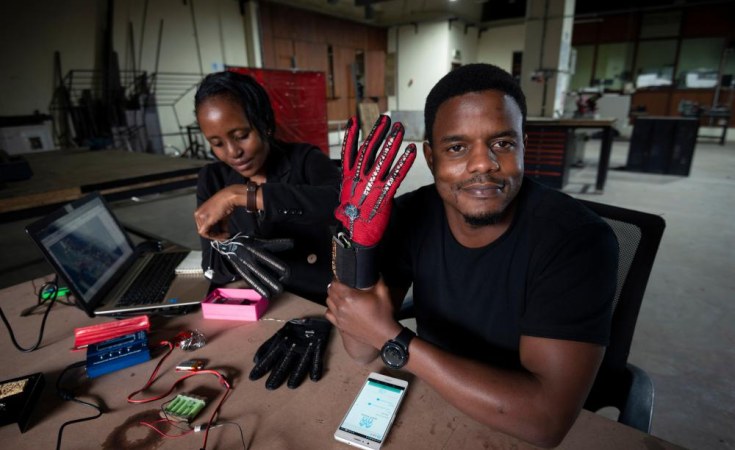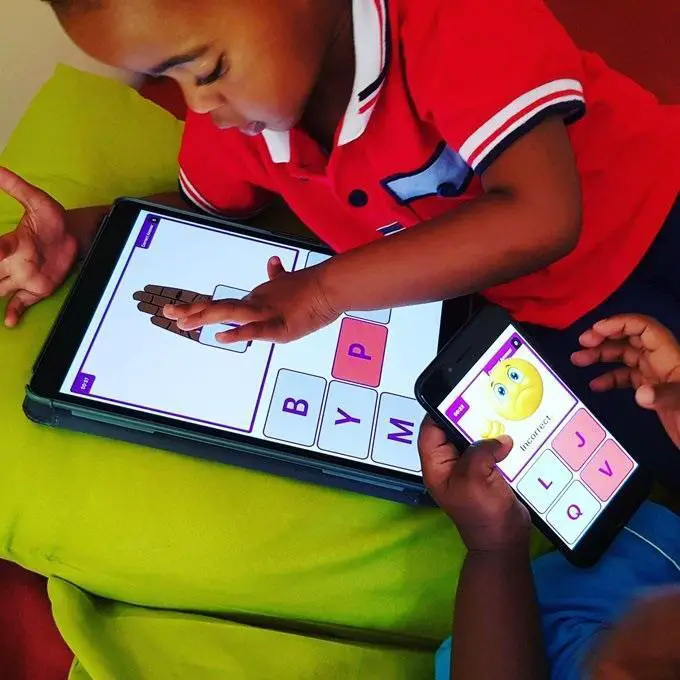Assistive Technology products and services
Technology is making Africa an inclusive continent when it comes to making life better for those living with disabilities.
By innovating assistive technology products and services, the brains behind these creations are embracing those that have been left behind by society’s advancement.
Kenya which has been in the frontline in embracing tech solutions to everyday challenges has seen revolutionary innovations which are making life better for those who would otherwise be marginalized elsewhere in the societal strata.
To help those with hearing impairment, Roy Allela became a hero after inventing smart hand gloves capable of converting sign language movements into audio speech.
Allela says that his innovation was inspired by the need to communicate with his 6-year-old niece, who was born deaf.
The Kenyan youth was among 16 young Africans who were shortlisted by The Royal Academy of Engineering Africa Prize to receive funding, training and mentoring for projects intended to revolutionize sectors from agriculture and science to women’s health.
Sign-IO, Allela’s smart gloves
With the challenge that is sign language, Allela’s innovation came in handy for family members who were struggling to communicate with his niece.
Dubbed Sign-IO, Allela’s smart gloves use flex sensors placed on each finger. These sensors have the capacity to read and interpret the bend of fingers during sign language communication processing the letters being signed.

To cater to the different speaking speeds, the gloves have been created in such a way that they feed the information into the app which normalizes the speech for each user’s comfort.
With accuracy results at 93 per cent, the app enables users to set the gender, language and pitch of the audio voice.
Another invention by yet another Kenyan is meant to help the visually impaired to live comfortably without much dependence on others.
Last year, Raphael Mwachiti, a Kenyan student at the Aga Khan Academy Mombasa achieved international recognition for his innovative work which uses technology to help visually impaired individuals.
The student won the Ryerson Sandbox in Toronto, Canada, runs an intensive boot camp for six weeks every year.
The university invites students to submit their solutions to real-life issues, and once they pass a rigorous application process, they are selected to attend the camp.
Fingerspelling Pro for Kids mobile application
And now, Hudson Asiema has developed the Fingerspelling Pro for Kids mobile application, an alphabet game in sign language for hearing impaired, deaf children and their families. The app helps children to learn, play and practice handshapes of letters.
This innovation made him the first-ever winner of the Inclusive Africa Conference Digital Accessibility Innovations Award.
Asiema won the Shs 1 million (US$10,000) prize contributed by inABLE.org. inABLE works to promote digital accessibility in Africa.
The Founder and Executive Director of inABLE, Irene Mbari-Kirika said, “The launch of the Digital Accessibility Innovations Award is meant to encourage more African software developers and technology experts to create more accessible solutions that have persons with disability at the centre of the design.”
She added, “I am excited about the future of this innovations award and the potential of African developers who are leading the way for more accessible solutions for people with disabilities, who need it the most.”

Read: Safaricom’s ‘Twaweza’ rings true for deaf athletes in Kenya
Asiema is a self-taught developer and the co-founder/CEO of Deaf eLimu Plus Limited, a Kenyan startup company that provides innovative educational products and tutorial services in sign language.
He has created web apps, mobile apps and bots using Facebook Messenger and he also has a vast experience in Google App Engine.
Asiema is also a graduate from the California State University, Northridge, California USA, where he earned his Bachelor of Science in Computer Science degree.
The Fingerspelling Pro games include Learn, Quiz, Handshape Sorting and Puzzles. In the long run, this app not only helps the hearing impaired and deaf kids to learn and play games at home with minimal disruptions. It also enables these kids to communicate with other deaf and hearing-impaired people, as well as communicate with their parents or siblings.
This digital accessibility innovations award is meant to celebrate and recognize the best inclusive African innovations. Out of the 20 submissions received from across Africa, the judges recognized the top two finalists.
The first Runner up was Oluwatomisin Kolawole from Nigeria, who created the Visis by Vinsighte mobile application that uses Visis Artificial Intelligence to aid the visually impaired. The Visis project involves the use of Visis artificial intelligence mobile application and other assistive technology device to aid the visually impaired to read printed books and educational materials, thereby giving them access to convenient, inclusive and sound education like their sighted peers.











